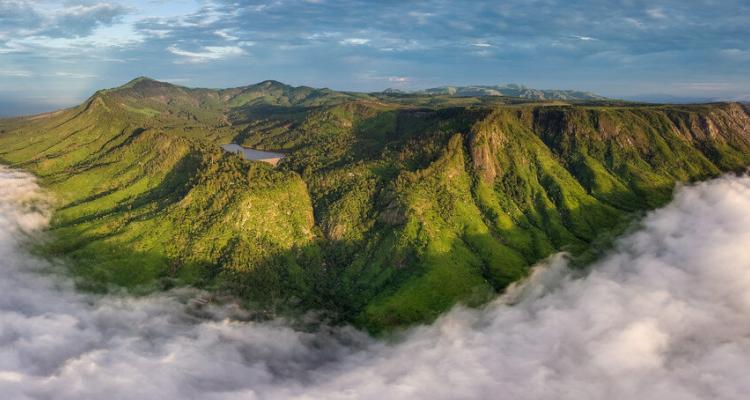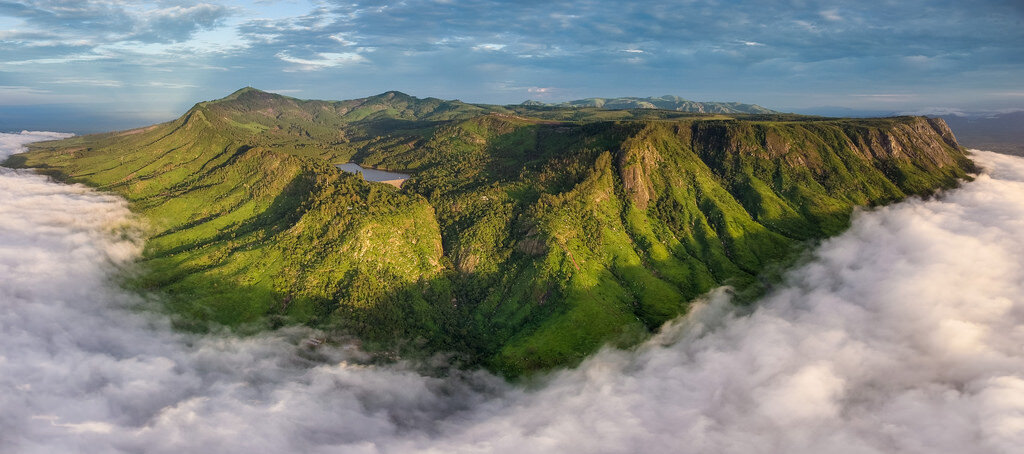
Eighteen years after adopting Vision 2020, Malawi is yet to achieve one of the stated goals which is environmental sustainability.
According to the Vision 2020 document signed by the then leader President Bakili Muluzi, Vision 2020 is a long-term development vision of Malawi prepared to serve as a base for short and medium-term plans that will lead to the Vision that Malawians see for the year 2020.

The vision statement states that: “By the year 2020, Malawi as a God-fearing nation will secure, democratically mature, environmentally sustainable, self-reliant with equal opportunities for and active participation by all, having social services, vibrant cultural and religious values and being a technologically driven middle-income economy.”
After the day of adoption of the Vision statement, a lot has happened to the country’s environment in order to sustain it but to no avail.
In the early years of the Vision 2020, there was a lot of enthusiasm among all stakeholders in ensuring that the country moves toward the realisation of the Vision and they came up with measures of how to sustain the country’s environment.
However, the enthusiasm was short-lived amongst stakeholders and the government as well and it is now one solid year before 2020 with the environmental sector down the normal lines.
In an exclusive interview, Dr David Mkwambisi who is Associate Professor of Environment and Development at the Lilongwe University of Agriculture and Natural Resources (Luanar) said Malawi is struggling to fulfil its vision on environment.
Mkwambisi said whilst the vision statement was clear on the roadmap to sustain the country’s environment, there has been no clear and strategic interventions that have protected the environment.
He told this reporter that the vision statement has not been and will not be fulfilled come 2020.
“The democratic dispensation, increased poverty levels, population growth, corruption, lack of patriotism, greed, political interference and even climate change related challenges have all contributed to environmental degradation in Malawi.
“As such, we have destroyed Chikangawa, Dzalanyama Forests and even resources on Mulanje Mountain. Most of the forest reserves have been destroyed because there was no any Ministry of Department that was put in place to guard our vision,” Nkwambisi told Malawi24.
He then added that the main effect has been increased floods, soil loss (resulting in food insecurity and health challenges).
He continued to say that even though the government has started mainstreaming issues of poverty and environment in its budget, the initiative has come too late to protect the environment.
“You will note that there is high biodiversity loss in all the regions and most of indigenous species have also been lost. Because we have more poor people in both rural and urban areas, the chances of sustaining our environment is very slim because the poor will continuously depend on natural resources,” added Dr Mkwambisi.
On the impact of failing to sustain environment, Mkwambisi said Malawi has had negative changes since the adoption of the frameworks and one key issue is failure to expand the economy and also lack of enforcement on the use and utilisation of environmental services.
He said if the trend continues, the economic poverty shall be linked to environmental poverty and the consequences will be many including loss of lives.
According to Mkwambisi, reducing poverty levels will help Malawi overcome environmental challenges.
He further said this will require support for economic initiatives that will target the youth who are jobless and have no hope.
Mkwambisi added that another measure is to revisit the whole education system to make sure that there is high quality education that incorporates entrepreneurship and vocational skills.
“On the other hand, the government should aim to stick to its development strategies especially the MGDSIII.
“All development partners should support what Malawians want to achieve rather than dictating to the government what it should do. This will require transformative and strategic leadership at all levels,” he concluded.
In 2015, commissioners on reform recommended that President Peter Mutharika relaunch the Vision 2020 to have the whole nation rally behind it.
The commission also called on the President to champion the Vision 2020 agenda and appoint a team to monitor progress and report on quarterly basis.














